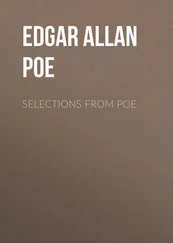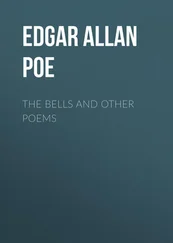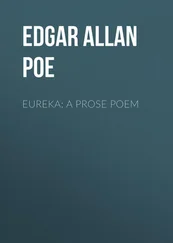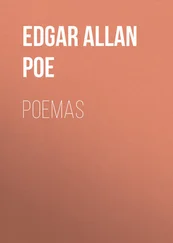Edgar Poe - CRITICISM
Здесь есть возможность читать онлайн «Edgar Poe - CRITICISM» весь текст электронной книги совершенно бесплатно (целиком полную версию без сокращений). В некоторых случаях можно слушать аудио, скачать через торрент в формате fb2 и присутствует краткое содержание. Жанр: на английском языке. Описание произведения, (предисловие) а так же отзывы посетителей доступны на портале библиотеки ЛибКат.
- Название:CRITICISM
- Автор:
- Жанр:
- Год:неизвестен
- ISBN:нет данных
- Рейтинг книги:3 / 5. Голосов: 1
-
Избранное:Добавить в избранное
- Отзывы:
-
Ваша оценка:
- 60
- 1
- 2
- 3
- 4
- 5
CRITICISM: краткое содержание, описание и аннотация
Предлагаем к чтению аннотацию, описание, краткое содержание или предисловие (зависит от того, что написал сам автор книги «CRITICISM»). Если вы не нашли необходимую информацию о книге — напишите в комментариях, мы постараемся отыскать её.
CRITICISM — читать онлайн бесплатно полную книгу (весь текст) целиком
Ниже представлен текст книги, разбитый по страницам. Система сохранения места последней прочитанной страницы, позволяет с удобством читать онлайн бесплатно книгу «CRITICISM», без необходимости каждый раз заново искать на чём Вы остановились. Поставьте закладку, и сможете в любой момент перейти на страницу, на которой закончили чтение.
Интервал:
Закладка:
We think on what they were, with many fears
Lest goodness die with them, and leave the coming years. The defects, here, are all of a metrical and of course minor nature, but are still defects. The line
When o'er the buds of youth the death-wind blows, is impeded in its flow by the final th in youth, and especially in death where w follows. The word tears cannot readily be pronounced after the final st in bitterest; and its own final consonants, rs, in like manner render an effort necessary in the utterance of stream which commences the next line. In the verse
We think on what they were, with many fears the word many is, from its nature, too rapidly pronounced for the fulfilment of the time necessary to give weight to the foot of two syllables. All words of two syllables do not necessarily constitute a foot (we speak now of the Pentameter here employed) even although the syllables be entirely distinct, as in many, very, often, and the like. Such as, without effort, cannot employ in their pronunciation the time demanded by each of the preceding and succeeding feet of the verse, and occasionally of a preceding verse, will never fail to offend. It is the perception of this fact which so frequently forces the versifier of delicate ear to employ feet exceeding what are unjustly called legitimate dimensions. For example. We have the following lines Lo! to the smiling Arno's classic side,
The emulous nations of the West repair!
These verses are exceedingly forcible, yet, upon scanning the latter we find a syllable too many. We shall be told possibly that there should be an elision of the e in the at the commencement. But no- this was not intended. Both the and emulous demand a perfect accentuation. The verse commencing Lo!
Lo! to the smiling Arno's classic side, has, it will be observed, a Trochee in its first foot. As is usually the case, the whole line partakes, in consequence, of a stately and emphatic enunciation, and to equalize the time in the verse succeeding, something more is necessary than the succession of Iambuses which constitute the ordinary English Pentameter. The equalization is therefore judiciously effected by the introduction of an additional syllable. But in the lines
Stream, as the eyes of those that love us close,
We think on what they were with many fears, lines to which the preceding observations will equally apply, this additional syllable is wanting. Did the rhyme admit of the alteration, everything necessary could be accomplished by writing
We think on what they were with many a fear,
Lest goodness die with them and leave the coming year. These remarks may be considered hypercritical- yet it is undeniable that upon a rigid attention to minutiae such as we have pointed out, any great degree of metrical success must altogether depend. We are more disposed, too, to dwell upon the particular point mentioned above, since, with regard to it, the American Monthly, in a late critique upon the poems of Mr. Willis, has evidently done that gentleman injustice. The reviewer has fallen into what we conceive the error of citing, by themselves, (that is to say insulated from the context) such verses as
The night-wind with a desolate moan swept by.
With difficult energy and when the rod.
Fell through, and with the tremulous hand of age.
With supernatural whiteness loosely fell. for the purpose of animadversion. "The license" he says "of turning such words as 'passionate' and 'desolate' into two syllables could only have been taken by a pupil of the Fantastic School." We are quite sure that Mr. Willis had no purpose of turning them into words of two syllables- nor even, as may be supposed upon a careless examination, of pronouncing them in the same time which would be required for two ordinary, syllables. The excesses of measure are here employed (perhaps without any definite design on the part of the writer, who may have been guided solely by ear) with reference to the proper equalization, of balancing, if we may so term it, of time, throughout an entire sentence. This, we confess, is a novel idea, but, we think, perfectly tenable. Any musician will understand us. Efforts for the relief of monotone will necessarily produce fluctuations in the time of any metre, which fluctuations, if not subsequently counterbalanced, affect the ear like unresolved discords in music. The deviations then of which we have been speaking, from the strict rules of prosodial art, are but improvements upon the rigor of those rules, and are a merit, not a fault. It is the nicety of this species of equalization more than any other metrical merit which elevates Pope as a versifier above the mere couplet-maker of his day, and, on the other hand, it is the extension of the principle to sentences of greater length which elevates Milton above Pope. Knowing this, it was, of course, with some surprise that we found the American Monthly (for whose opinions we still have the highest respect,) citing Pope in opposition to Mr. Willis upon the very point to which we allude. A few examples will be sufficient to show that Pope not only made free use of the license referred to, but that he used it for the reasons, and under the circumstances which we have suggested.
Oh thou! whatever title please thine ear,
Dean, Drapier, Bickerstaff, or Gulliver!
Whether thou choose Cervantes' serious air,
Or laugh and shake in Rabelais easy chair. Any person will here readily perceive that the third line
Whether thou choose Cervantes' serious air, differs in time from the usual course of the rhythm, and requires some counterbalance in the line which succeeds. It is indeed precisely such a verse as that of Mr. Bryant's upon which we have commented,
Stream, as the eyes of those that love us close, and commences in the same manner with a Trochee. But again, from Pope we have Hence hymning Tyburn's elegiac lines
Hence Journals, Medleys, Mercuries, Magazines.
Else all my prose and verse were much the same,
This prose on stilts, that poetry fallen lame.
And thrice he lifted high the birth-day brand
And thrice he dropped it from his quivering hand.
Here stood her opium, here she nursed her owls,
And here she planned the imperial seat of fools.
Here to her chosen all her works she shows;
Prose swell'd to verse, verse loitering into prose.
Rome in her Capitol saw Querno sit
Throned on seven hills, the Antichrist of wit.
And his this drum whose hoarse heroic bass
Drowns the loud clarion of the braying ass.
But such a bulk as no twelve bards could raise
Twelve starveling bards of these degenerate days.
These are all taken at random from the first book of the Dunciad. In the last example it will be seen that the two additional syllables are employed with a view of equalizing the time with that of the verse,
But such a bulk as no twelve bards could raise, a verse which will be perceived to labor in its progress- and which Pope, in accordance with his favorite theory of making sound accord with sense, evidently intended so to labor. It is useless to say that the words should be written with elision-starv'ling and degen'rate. Their pronunciation is not thereby materially affectedand, besides, granting it to be so, it may be as well to make the elision also in the case of Mr. Willis. But Pope had no such intention, nor, we presume, had Mr. W. It is somewhat singular, we may remark, en passant, that the American Monthly, in a subsequent portion of the critique alluded to, quotes from Pope as a line of "sonorous grandeur" and one beyond the ability of our American poet, the well known
Luke's iron crown and Damien's bed of steel. Now this is indeed a line of "sonorous grandeur"- but it is rendered so principally if not altogether by that very excess of metre (in the word Damien) which the reviewer has condemned in Mr. Willis. The lines which we quote below from Mr. Bryant's poem of The Ages will suffice to show that the author we are now reviewing fully appreciates the force of such occasional excess, and that he has only neglected it through oversight in the verse which suggested these observations.
Читать дальшеИнтервал:
Закладка:
Похожие книги на «CRITICISM»
Представляем Вашему вниманию похожие книги на «CRITICISM» списком для выбора. Мы отобрали схожую по названию и смыслу литературу в надежде предоставить читателям больше вариантов отыскать новые, интересные, ещё непрочитанные произведения.
Обсуждение, отзывы о книге «CRITICISM» и просто собственные мнения читателей. Оставьте ваши комментарии, напишите, что Вы думаете о произведении, его смысле или главных героях. Укажите что конкретно понравилось, а что нет, и почему Вы так считаете.









